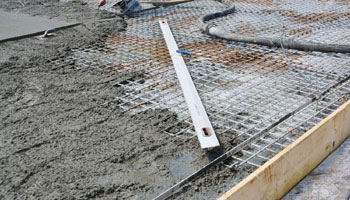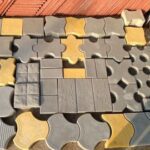Introduction of RCC ( Reinforced Cement Concrete)
-
- Concrete is a versatile material that has a wide usage in the development of structures.
-
- RCC meaning in terms of engineering could be a material that consists of steel and concrete ( it could be a mixture of cement sand and aggregate) is referred to as Reinforced cement concrete.
-
- In this text, you will learn everything about RCC Construction and pros and cons of reinforced cement concrete.
What Is RCC?
-
- Full form of RCC is Reinforced Cement Concrete. it’s a material that is the combination of standard concrete with reinforcement like steel to extend the compressive strength and enduringness of the concrete.
-
- RCC concrete is widely employed in the development of structures from foundations to the roof, construction of highways and irrigation canals, etc.
-
- Concrete has high compression strength and can withstand a high pressure however it is not very tensile therefore reinforcement is added in concrete to increase its tensile strength.
-
- Reinforcement resists the tensile stress of the concrete and will increase its resilience. The Steel is provided within the concrete due to its high durability and strong bond with concrete.
Materials Which Are Used in the RCC (Reinforced Cement Concrete):
-
- Cement
-
- Aggregates
-
- Admixtures
-
- Steel
-
- Water
1. Cement:
Cement is a Binder. It is a powder mixture of various compounds that sets and harden and bind different materials with one another.
2. Aggregates:
Aggregate can be defined as granulated product used to make concrete. Aggregates can be classified into two groups fine (stone dust) which can pass through 4.75 mm sieve and coarse (stone grit) which are not able to pass through 4.75mm sieve.
3. Admixtures:
It is a chemical substance added to concrete mixture before or during the mixing process to increase the strength and binding properties of the mixture.
4. Steel:
Steel is used to increase tensile strength of concrete. Mostly TMT (Thermos Mechanically Treated) bars are used of various diameters depending on the size, the usage and reinforcement required in the finished product.
5. Water:
Water is used to mix cement, aggregate (stone grit and stone dust) and admixtures. Cement binds with aggregates better when they are wet rather then dry, this is because when aggregates comes in contact with water they become adhesive.
Properties of RCC (Reinforced Cement Concrete):
Here are the different properties of reinforced cement concrete:
-
- Reinforced cement concrete doesn’t show excessive deflection.
-
- Reinforced cement concrete can withstand tensile and compressive forces.
-
- RCC has high weather resistance.
-
- Reinforced cement concrete has high heat and fire tolerance.
-
- It provides complete insulation against sound.
-
- Reinforced cement concrete can be molded into any desired shape as per your demand.
Advantages of Reinforced Cement Concrete:
There are various advantages of reinforced cement concrete are as follows:
-
- RCC has high compressive strength.
-
- It is durable and lasts a long time without much maintenance.
-
- Reinforced cement concrete has higher resistance to fire as compared to other alternatives.
-
- RCC products are sturdier and are stronger compared to any other material.
-
- Concrete is moldable which means it can be molded into any shape or size.
-
- The manufacturing of reinforced cement concrete requires less-skilled labor as compared to Construction of steel structures.
Disadvantages of Reinforced Cement Concrete:
There are also some limitations of Reinforced cement concrete which are as follows:
-
- To make concrete all the raw materials should be added precisely, failing to do so can ruin the mixture completely.
-
- RCC products are heavier than the products made from other materials such as wood or steel.
-
- Reinforced cement concrete requires a long curing time to assume its full strength.
-
- As concrete losses water it may develop cracks and subsequently losses its strength.
For More Info Please contact us on:
Mail Us: shubhsanskarconcrete@gmail.com
Call Us: +91 99990 62399, +91 9810756705
Visit Our Website on: www.shubhsanskarconcrete.com
Follow on Facebook: https://www.facebook.com/shubhsanskarconcrete
Follow On Instagram: https://www.instagram.com/shubhsanskarconcrete/
Follow On twitter: https://twitter.com/shubhsanskarc
Follow On LinkedIn: https://www.linkedin.com/company/shubhsanskarconcrete/




